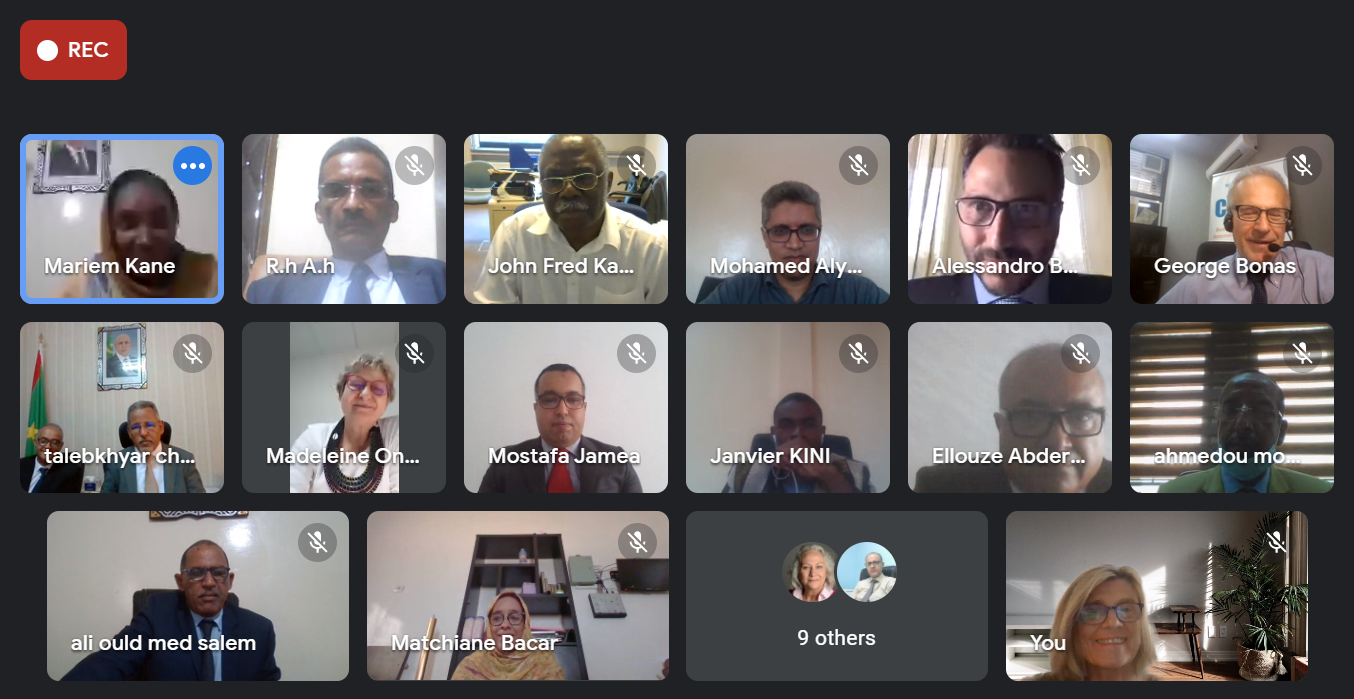Mauritania will benefit from a technical support provided the Policy Support Facility (PSF), set up by the Secretariat of the Organisation of African, Caribbean and Pacific States (OACPS), to develop an inclusive national R&I strategy aimed at addressing the major challenges of the 21st century and making the knowledge economy a vector for sustainable development.
The kick-off meeting of the MSP service was held virtually on Tuesday 27 July in the presence of 25 key stakeholders, representing notably the Ministry of Higher Education and Scientific Research and the National Agency for Scientific Research and Innovation (ANRSI) of Mauritania, the OACPS Secretariat and the European Union (EU) delegation in Mauritania.
Speaking on behalf of his Minister, Mrs. Amal Sidi Cheikh Abdallahi, the Secretary General of the Ministry of Higher Education and Scientific Research, Mr. Ahmedou Ould Khteira, recalled that “research and innovation are essential stimulating tools for the development of any nation seeking to adapt its economy to modern changes.”
In a context marked by the Covid-19 pandemic, they have a crucial role to play, stressed Dr Norbert Ibrahim, Assistant Secretary General of the Organisation of African, Caribbean and Pacific States (OACPS) in charge of political affairs and human development “more than ever, not only in overcoming this crisis, preventing and mitigating the impact of other epidemics, and getting back on the path of sustainable growth, but also in accelerating two major transitions, digital and ecological, by putting the former at the service of the latter.
Ms Madeleine Onclin, Head of the Inclusive and Sustainable Growth Sector of the European Union Delegation to Mauritania, followed the same line of thought as the previous speakers, giving the three reasons that make R&I a very important lever for sustainable development: “1/ it contributes directly to progressing towards the objectives of sustainable development and to coping with major environmental changes (…); 2/ research plays a fundamental role in shedding light on the changes underway and in gaining a better understanding of the transformations that are necessary (…); 3/ it is a powerful tool for development and autonomy. Societies cannot develop in the long term without producing themselves the knowledge they need (…)”.
The PSF service will contribute to, among others:
- Setting the main priorities for R&I for the next five years.
- Strengthening private sector participation and promote open science and open innovation.
- Identifying measures and operational mechanisms to finance R&I, and improving the steering of the R&I strategy.
- Building bridges between research, industry, society and higher education, and fostering the mobility of researchers within the R&I ecosystem.
- Reducing the gender gap, especially in STEM.
- Valuing indigenous ancestral knowledge.
- Making research a lever of employability for young graduates.
- Achieving the UN SDGs, the objectives of STISA 2024 and the ‘Agenda 2063: The Africa We Want’.
The PSF service will be carried out, over a period of 6 months, by an international panel of experts who will actively collaborate with the national team of Mauritania and the PSF team (OACPS R&I Programme).

(Participants of the online kick-off meeting)
Launched in January 2021, the PSF is one of the components of the OACPS Research and Innovation Programme, implemented by the Organisation of African, Caribbean and Pacific States (OACPS) and funded by the European Union (EU). The Programme has a three-pronged approach to unlock innovation potential in the 79 OACPS member countries:
- PSF to enhance the quality of R&I policies and systems,
- Innovation Fund to foster a conducive R&I environment, and
- Web portal to cross-fertilise knowledge and experiences between R&I actors.
For more information on this PSF service, please download:
Factsheet of the PSF service in Mauritania
Presentation of the members of the Expert Panel
